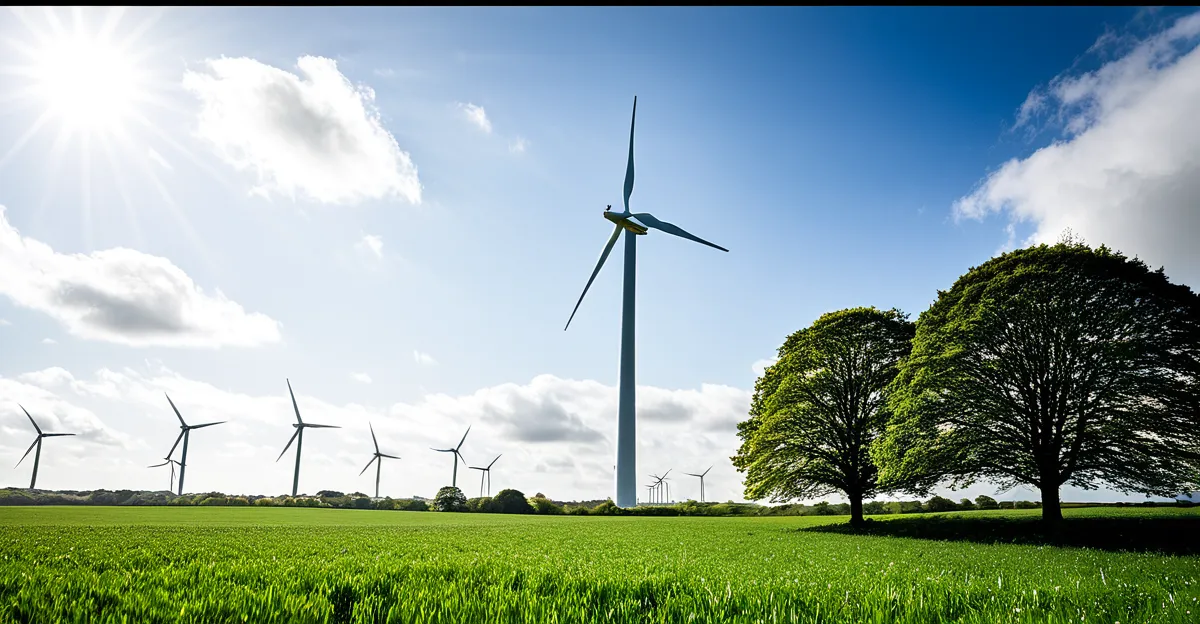Factors Driving UK Policymakers’ Emphasis on Green Energy
The UK green energy policy drivers are strongly influenced by growing concerns about climate change. Policymakers face mounting pressure to respond to the escalating impacts of global warming, prompting urgent action to reduce carbon emissions. This urgency is reflected in the commitment to ambitious net-zero targets, which serve as both a legal obligation and a moral imperative supported by international climate agreements such as the Paris Accord.
In addition to environmental concerns, the UK government views green energy as a catalyst for economic revitalization. The shift towards renewable energy sources is seen as a strategic opportunity to stimulate economic growth and job creation through green industries. Investment in sectors such as wind, solar, and hydrogen technology promises to create sustainable employment and position the UK as a leader in the global green economy.
Have you seen this : How Will Recent Political Changes Affect UK’s Economy?
Legal commitments underpin much of the policy framework, with statutes mandating specific timelines and emission reductions. These legal obligations not only drive national climate policy motivations but also ensure compliance with global standards. Together, these factors—response to intensifying climate change concerns, adherence to binding legal frameworks, and the pursuit of green economic development—form a comprehensive rationale for the UK’s continued emphasis on clean energy initiatives.
Recent Policy Developments and Government Actions
Recent years have seen significant momentum in UK green initiatives as the government intensifies efforts to meet ambitious climate targets. Central to this push is the adoption of comprehensive legislative frameworks like the Net Zero Strategy, setting clear pathways to achieve net-zero emissions by 2050. This strategy outlines detailed sector-specific measures, encompassing energy production, transportation, and industry, reflecting a broad commitment to sustainable transformation.
Also to see : How Can Recent Events in the UK Shape Its Future Policies?
Funding for renewable energy projects has increased substantially, demonstrating a tangible policy prioritization of clean energy technologies. Government budgets now allocate resources toward expanding offshore wind farms, solar power infrastructure, and hydrogen development programs. These investments not only support decarbonization goals but also stimulate innovation and strengthen the UK’s position in emerging green markets.
Cross-party support underscores the political consensus on climate action, ensuring that government climate strategies enjoy continuity beyond electoral cycles. This unity provides stability to the regulatory environment, encouraging private sector participation and long-term planning. Statements from key government figures emphasize resilience and inclusivity, highlighting the social and economic benefits of the green transition alongside environmental imperatives. Together, these policy developments demonstrate a robust and coordinated approach to advancing the UK’s climate ambitions.
The Role of Energy Security and International Context
Amidst growing global uncertainties, UK energy security has become a pivotal factor shaping climate policy motivations. Ensuring a stable and affordable domestic energy supply is critical as geopolitical tensions and fluctuating fossil fuel markets threaten energy availability and price stability. Policymakers recognize that reducing dependency on imported fossil fuels enhances resilience and protects the economy from external shocks.
International pressures further influence the UK’s green energy policy drivers. Commitments under global climate agreements and close partnerships with other nations create a framework demanding progressive emissions reductions. These agreements act as policy pressures that compel the UK to align its energy strategies with evolving international standards—strengthening its green credentials while fostering cooperation in clean energy innovation.
Transitioning toward renewable energy is central to mitigating these vulnerabilities. By expanding wind, solar, and hydrogen capacities, the UK aims to significantly cut reliance on fossil fuel imports. This strategic shift not only bolsters energy security but also supports the broader climate policy motivations tied to sustainability and economic growth. Thus, the interplay between UK energy security, global energy trends, and policy pressures remains a core driver of ongoing green energy initiatives.
Influence of Technology and Public Opinion on Policy Focus
Advances in green technology UK have significantly shaped the landscape of climate policy motivations. Innovations in renewable energy, such as more efficient wind turbines, enhanced solar panels, and scalable hydrogen fuel systems, have made the transition away from fossil fuels not only feasible but economically attractive. These technological strides reduce costs, improve energy output, and enable integration with existing infrastructure, which encourages policymakers to prioritize clean energy development in strategic plans.
Public opinion on climate policy exerts powerful influence on government climate strategies. Increasing awareness and concern over environmental issues drive societal demand for government action, creating a political environment in which climate commitments are essential for maintaining public support. Surveys indicate growing public endorsement of renewable energy and carbon reduction targets, which reinforce policymakers’ incentives to pursue ambitious green initiatives.
Combining green technology UK developments with mounting public pressure fosters a more responsive and dynamic policy framework. This integration aligns innovation with social expectations, leading to comprehensive approaches that emphasize sustainability and economic opportunity. As a result, the traction gained from technological progress and societal advocacy plays a pivotal role in shaping the trajectory of the UK’s clean energy policies.





